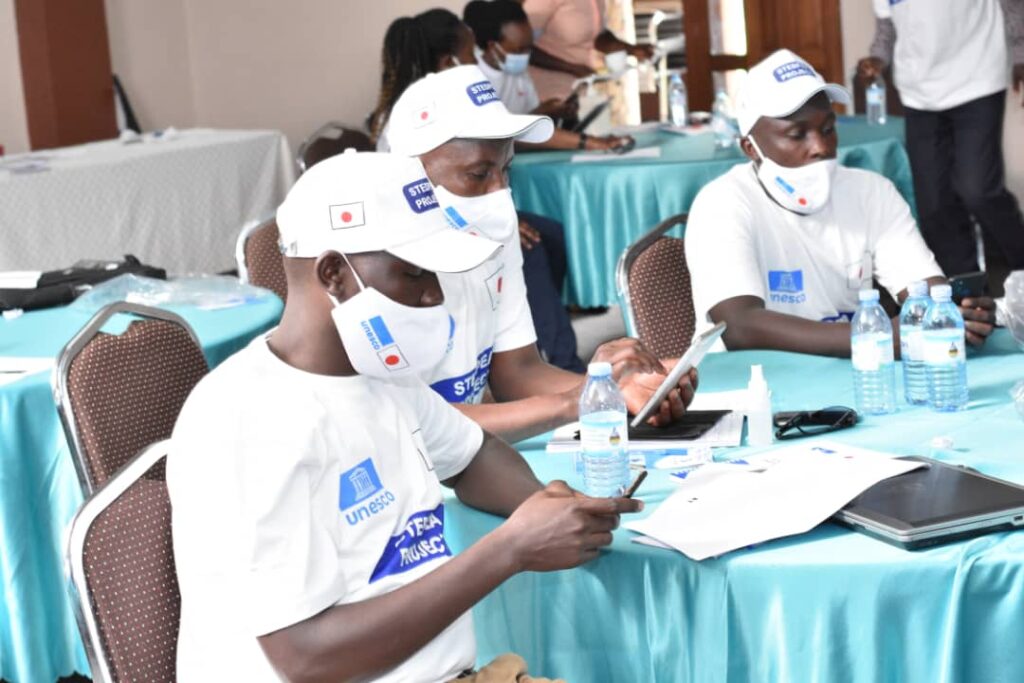UNESCO fronts pre-disaster action in Uganda under (STEDPAE project). The Uganda National Commission for UNESCO is implementing the Strengthening Disaster Prevention Activities under the STEDPAE project.
The major purpose of the project is to support the development and integration of science-evidenced artificial intelligence (AI) innovations, citizen science and gender-responsive actions into strategies and action plans for disaster risk reduction in schools, higher education, communities and public sector institutions in Uganda.
According to the Secretary-General of the Uganda National Commission for UNESCO, Ms Rosie Agoi, the team is closely involved in the conceptual shift in thinking away from post-disaster reaction to pre-disaster action: putting adequate warning and mitigation measures in place to save lives in a humanitarian sense and announcing prevention which is worth a cure in the economic sense.

“In Uganda, developments in artificial intelligence (AI), big data – and innovations like robotics and drone technology are limitedly used hence hampering efforts in development & implementation of disaster preventive solutions.”
In Eastern Africa, both weather-related and geological hazards have happened in unexpected scales such as the occurrence of landslides, flash floods, droughts, earthquakes, tremors and wildfires which have also affected most parts of Uganda and have usually caused deaths of many and displaced thousands of inhabitants.
Simon Peter Okello the Early warning and Emergency Communications Specialist at the National Emergency Coordination and Operations Center in the Department of Relief Disaster Preparedness and Management at the Office of the Prime Minister in Uganda revealed that cases of drought in most parts of Uganda, earthquakes along the Albertine belt and lightning countrywide are among some of the recent disasters whose impacts are greatly felt in the country and there is need for a continuous engagement of the stakeholders including the society, at the national and international level to be in a position to implement the pre-disaster strategies.
“The country has faced various weather-related and geological hazards of frequent, nearly annual occurrence in form of landslides in Mt Elgon and Rwenzori areas, flush floods in Kasese, Kampala among other areas, droughts, earthquakes, tremors, lightning and wildfires. Most of these have caused many deaths and displaced hundreds of inhabitants as per the study done by the National Commission in 2013/14 biennium.”
The Japanese institutions in the partnership with UNESCO include Weathernews Inc, LINE Corporation and the National Research Institute for Earth Science and Disaster Resilience that developed the AI-based chatbot to enable immediate rapid reactions, before, during and after disasters.
Also, read;












































Discussion about this post